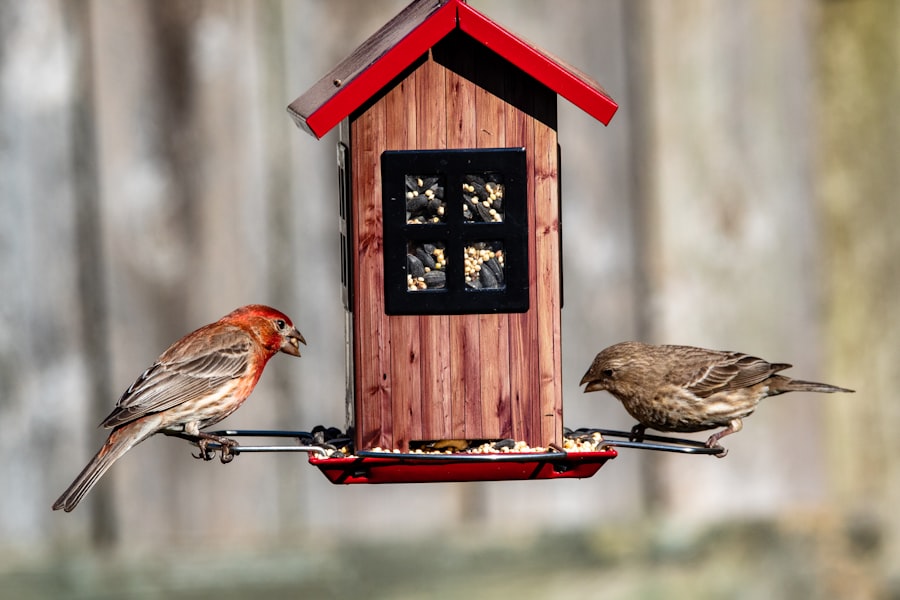Before keeping chickens, it is essential to understand local regulations regarding poultry farming. Different regions have varying rules concerning the number of chickens allowed, coop specifications, and acceptable noise levels. Some areas may require permits or licenses for keeping chickens.
Non-compliance with local regulations can result in fines or the need to remove your chickens, making thorough research crucial. Homeowners’ association rules and neighborhood covenants should also be considered, as they may restrict livestock keeping, including chickens. Checking with your homeowners’ association or neighborhood council is advisable before starting a chicken-keeping venture.
Understanding and adhering to all local regulations and neighborhood rules ensures a smooth experience when keeping chickens. This proactive approach helps avoid potential conflicts and legal issues, allowing you to enjoy the benefits of chicken ownership without unnecessary complications.
Table of Contents
Key Takeaways
- Local regulations for keeping chickens vary by area and it’s important to understand and comply with them to avoid legal issues.
- Calculating potential costs for keeping chickens includes expenses for housing, feed, healthcare, and other supplies.
- Creating a suitable living environment for chickens involves providing adequate space, shelter, and protection from predators.
- Choosing the right breed of chickens depends on factors such as egg production, temperament, and climate adaptability.
- Proper care and maintenance for chickens includes providing a balanced diet, regular health check-ups, and keeping the coop clean.
- Ensuring the safety and health of chickens involves protecting them from predators, providing clean water, and monitoring for signs of illness.
- Benefits of keeping chickens include a fresh supply of eggs, natural pest control, and the joy of raising animals.
Calculating the potential costs
Initial Setup Costs
The initial setup costs can include building or purchasing a coop, purchasing feeders and waterers, and acquiring the necessary bedding and nesting materials. Additionally, there may be costs associated with obtaining any necessary permits or licenses for keeping chickens in your area.
Ongoing Maintenance Costs
Ongoing maintenance costs for chickens can include the cost of feed, bedding, and any necessary supplements or medications. It is crucial to consider the ongoing cost of feed, as well as any potential increases in feed prices over time. Furthermore, it is essential to budget for regular maintenance of the coop and any necessary repairs or upgrades.
Potential Veterinary Expenses
Finally, it is vital to consider potential veterinary expenses for your chickens, including routine check-ups, vaccinations, and any necessary medical treatment. By carefully calculating the potential costs of keeping chickens, you can ensure that you are prepared for the financial commitment involved in poultry farming.
Preparing a suitable living environment for chickens

Creating a suitable living environment for chickens is essential for their health and well-being. When preparing a living environment for chickens, it is important to consider factors such as space, shelter, and protection from predators. Chickens require adequate space to roam and forage, so it is important to provide a spacious outdoor area for them to explore.
Additionally, a well-ventilated and secure coop is essential for providing shelter and protection from the elements. The coop should be equipped with nesting boxes for laying eggs and perches for roosting at night. In addition to space and shelter, it is important to take measures to protect chickens from predators.
This can include installing fencing around the outdoor area to prevent access from predators such as foxes, raccoons, and birds of prey. Additionally, it is important to secure the coop with locks and latches to prevent entry from predators. Providing a suitable living environment for chickens also includes ensuring access to clean water and a balanced diet.
By creating a comfortable and secure living environment for chickens, you can ensure their health and well-being.
Choosing the right breed of chickens
When it comes to keeping chickens, choosing the right breed is an important decision that can impact the success of your poultry farming venture. There are many different breeds of chickens available, each with its own unique characteristics and traits. Some breeds are known for their egg-laying abilities, while others are prized for their meat production.
Additionally, some breeds are more cold-hardy or heat-tolerant than others, making them better suited for specific climates. When choosing a breed of chicken, it is important to consider factors such as egg production, temperament, and climate suitability. For those interested in egg production, breeds such as the Rhode Island Red, Leghorn, and Sussex are known for their high egg-laying capabilities.
If meat production is a priority, breeds such as the Cornish Cross and Plymouth Rock are popular choices. Additionally, it is important to consider the temperament of the breed, especially if you have children or other pets. Some breeds are known for being docile and friendly, while others may be more aggressive or flighty.
Finally, it is important to consider the climate in your area and choose a breed that is well-suited for your specific climate conditions. By carefully considering these factors and doing thorough research on different breeds, you can choose the right breed of chicken for your specific needs and preferences.
Providing proper care and maintenance for chickens
Proper care and maintenance are essential for keeping chickens healthy and happy. This includes providing a balanced diet, regular access to clean water, and maintaining a clean living environment. Chickens require a diet that is high in protein and essential nutrients to support their overall health and egg production.
This can include commercial chicken feed as well as access to fresh fruits and vegetables as treats. Additionally, it is important to provide access to clean water at all times to prevent dehydration. In addition to diet and water, regular maintenance of the coop and outdoor area is essential for providing proper care for chickens.
This includes regularly cleaning the coop to remove waste and soiled bedding, as well as providing fresh bedding material on a regular basis. Additionally, it is important to regularly inspect the coop for any signs of damage or wear and tear that may need repair. Regular maintenance also includes monitoring the health of the chickens for any signs of illness or injury.
By providing proper care and maintenance for chickens, you can ensure their health and well-being.
Ensuring the safety and health of the chickens

Protecting Chickens from Predators
Protecting chickens from predators can be achieved by installing fencing around the outdoor area and securing the coop with locks and latches. Regular inspections of the coop are also necessary to identify any signs of damage or wear that may compromise its security.
Monitoring Chicken Health
Monitoring the health of chickens involves regular observation for any signs of illness or injury. This includes looking out for changes in behavior, appetite, or egg production that may indicate a health issue.
Providing Regular Veterinary Care
Providing regular veterinary care for chickens is essential, including routine check-ups and vaccinations. By taking these measures, poultry farmers can prevent potential threats and provide a safe and healthy environment for their chickens.
Understanding the benefits of keeping chickens
There are many benefits to keeping chickens that make poultry farming a rewarding experience. One of the primary benefits of keeping chickens is access to fresh eggs. Chickens are prolific layers and can provide a steady supply of fresh eggs for personal consumption or even for sale.
Additionally, chicken manure is an excellent source of fertilizer for gardens and crops, making chickens a valuable asset for sustainable farming practices. Keeping chickens also provides an opportunity for self-sufficiency and sustainability. By raising your own chickens, you can reduce reliance on store-bought eggs and meat products while also reducing food waste through composting kitchen scraps with chicken waste.
Additionally, keeping chickens can be a fulfilling hobby that provides an opportunity for outdoor activity and connection with nature. Furthermore, keeping chickens can be educational for children and adults alike. It provides an opportunity to learn about animal husbandry, responsibility, and sustainable living practices.
By understanding the benefits of keeping chickens, you can appreciate the value that poultry farming brings to your life and community. In conclusion, keeping chickens can be a rewarding experience that provides numerous benefits including access to fresh eggs, sustainable farming practices, educational opportunities, and connection with nature. However, it is important to understand local regulations, calculate potential costs, prepare a suitable living environment, choose the right breed of chickens, provide proper care and maintenance, ensure safety and health of the chickens in order to have a successful poultry farming venture.
By taking these factors into consideration, you can enjoy the many rewards that come with keeping chickens while ensuring a positive experience for both yourself and your feathered friends.
If you’re considering keeping chickens, you may also be interested in learning about the dietary needs of geese. Poultry Wizard has an article on whether geese can eat chicken feed, which can provide valuable information for those looking to raise multiple types of poultry. Check it out here.
FAQs
What is the fine for keeping chickens?
The fine for keeping chickens can vary depending on local regulations and ordinances. It is important to check with your local government or homeowners association to understand the specific rules and potential fines for keeping chickens.
Are there specific regulations for keeping chickens?
Yes, many areas have specific regulations regarding the keeping of chickens, including rules about the number of chickens allowed, coop requirements, and distance from neighboring properties. It is important to familiarize yourself with these regulations to avoid potential fines.
Common reasons for fines related to keeping chickens include exceeding the allowable number of chickens, failure to properly maintain chicken coops, and creating a nuisance for neighbors through noise or odor.
How can I avoid fines for keeping chickens?
To avoid fines for keeping chickens, it is important to familiarize yourself with local regulations and ensure that you are in compliance with all rules and ordinances. This may include obtaining any necessary permits, properly maintaining chicken coops, and being considerate of neighbors.
What should I do if I receive a fine for keeping chickens?
If you receive a fine for keeping chickens, it is important to review the specific reasons for the fine and determine if you are in violation of any regulations. You may need to take corrective action to address the issue and avoid further fines. It may also be helpful to seek guidance from a legal professional familiar with local regulations.
Meet Walter, the feathered-friend fanatic of Florida! Nestled in the sunshine state, Walter struts through life with his feathered companions, clucking his way to happiness. With a coop that’s fancier than a five-star hotel, he’s the Don Juan of the chicken world. When he’s not teaching his hens to do the cha-cha, you’ll find him in a heated debate with his prized rooster, Sir Clucks-a-Lot. Walter’s poultry passion is no yolk; he’s the sunny-side-up guy you never knew you needed in your flock of friends!







